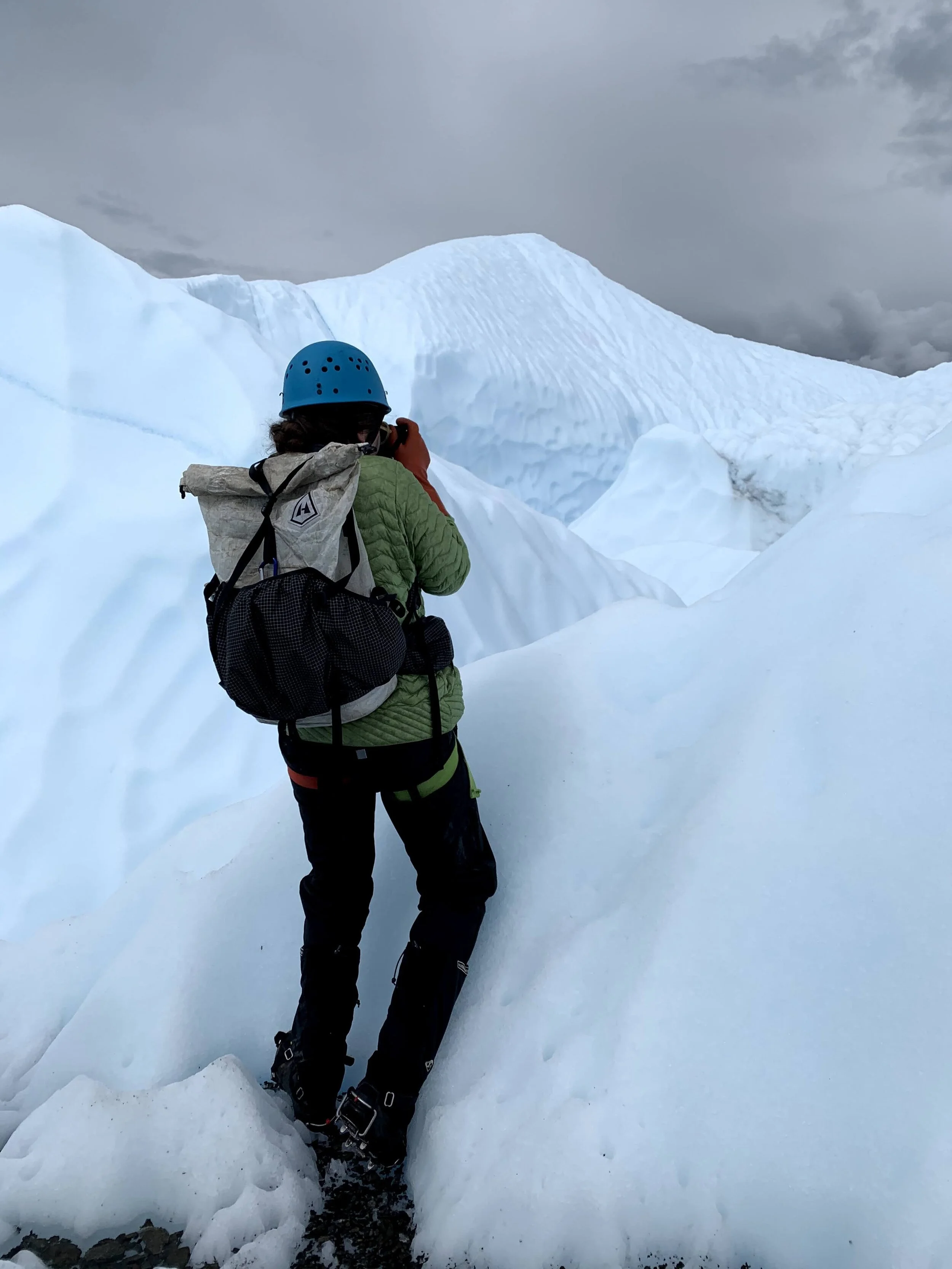Matanuska Glacier
12 pm
Our first steps on the glacier ice were aided by rope and crampons. One by one we climbed up a short incline to reunite with our guide who acted as our anchor on the short climb. This small gain in elevation brought us on top of the glacier. Now we stood on an expansive field of solid white ice. We hiked along behind our guide like a row of ducklings, following him to the location of the first moulin of the day.
We left the flat expansion of the glacier and began to navigate through hallways. These hallways had been carved away by tiny streams that flowed by our feet, water so clear at times the stream beds looked empty. The walls of the hallways were sculptural, carved away by the elements, sometimes white, sometimes blue. Sandwiched between two walls of ice, there was a chill the could be felt and smelt, a smell as lovely as the scent of anticipated snow.
The hallway through which we traveled used to be filled to the brim with water forming an ice blue lake. However, at some point in the recent and relentless evolution of this glacier, this moulin opened up and began draining the lake water downwards, burrowing through the glacier ice to the bedrock below. This explains the rapid movement of a glacier, for a moulin can occur over the course of several weeks. This feature among others all contribute to the ever changing composition of a glacier.
We visited a second moulin accompanied by a much larger blue pool. This moulin and the first worked together to drain this lake, drawing its waters to the rocked and eventually to join the river that flows from this glacier. While the feature and role of a moulin is fascinating and very much explains how a glacier is “alive”, it is the color of these pools that is most captivating. It is a blue color that brings to mind words like pure, immaculate.

























